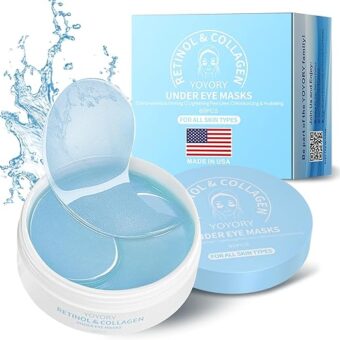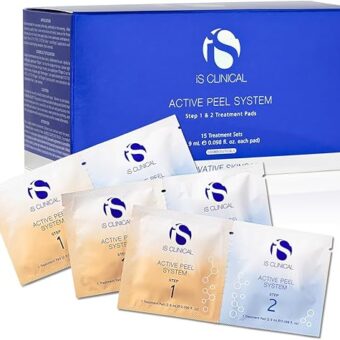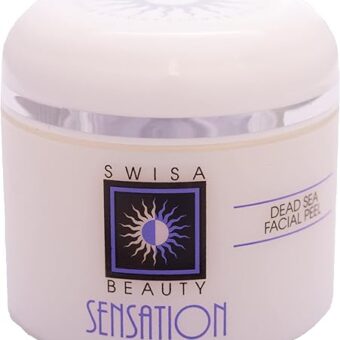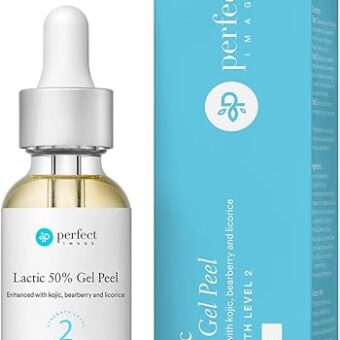In recent years, pomegranates have become popular as a fruit that can reduce inflammation and improve overall health. Polyphenols in pomegranate are nutrients that contain powerful antioxidants found in other plant foods like berries and green tea and link to many of these benefits. This article provides some essential information about the benefits of pomegranates for your skin.
Nutritional composition of pomegranate

Pomegranate is a berry with a thick skin; inside is a white membrane containing hundreds of juicy seeds with a sweet, sour taste. You can eat pomegranate seeds directly or sprinkle them on salads, oatmeal, and other dishes.
Here is a list of the nutrients found in 100g of pomegranate:
79.6 g water.
70 Kcal.
0.6g protein.
0.3g fat.
16.2 g carbohydrates.
2.5 g fiber.
16.57 g sugar.
259 mg potassium.
23 mg phosphorus.
13 mg calcium.
3 mg magnesium.
3 mg sodium.
6 mg vitamin C
Benefits of pomegranate for skin
1. Anti-aging

Pomegranate contains antioxidants and phenolic compounds such as punicalagin, anthocyanins, and hydrolyzable tannins. Antioxidants help protect the skin from free radicals, UV radiation, and pollutants.
Pomegranate extract is a powerful source of antioxidants, which help protect the skin from oxidative and hyperpigmentation and slow down the aging process. Ellagic acid, present in it, boosts the production of collagen, enhances skin suppleness, and diminishes the visibility of wrinkles.
When applied to the skin of mice, the antioxidants in pomegranates helped reduce the incidence of age spots and wrinkles. This effect is due to the ability of antioxidants to enhance skin cell regeneration. Thereby, pomegranate extract contributes to the skin regeneration process, enhancing the replacement of old skin cells with new cells.
2. Stimulates collagen production
Pomegranate extract contains ellagic acid, which can help improve skin firmness and reduce the appearance of wrinkles by stimulating collagen production. In addition, vitamin C in pomegranate also helps promote collagen production, minimizing the appearance of wrinkles.
3. Anti-inflammatory, acne prevention, and antibacterial

Pomegranate contains flavonoids such as quercetin, kaempferol, and rutin. These substances have anti-inflammatory properties that prevent many diseases, such as heart disease, type 2 diabetes, and cancer.
In addition, pomegranate also contains compounds such as punicalagin and ellagic acid, which have antibacterial and anti-inflammatory properties, preventing skin inflammation and the growth of acne-causing bacteria.
Pomegranates are also believed to possess natural antibacterial properties derived from vitamin C, which can aid in combating bacteria and fungi on your skin. Thanks to this, pomegranates can help kill P. acne bacteria, the main cause of acne.
4. Anti-UV

Punicalagin and ellagic acid are two substances found in pomegranate extract that have anti-sunlight properties. These compounds help absorb UV radiation and protect the skin from sun damage. However, you need to use sunscreen to maximize the protective effect.
Pomegranate peel also has the effect of protecting against ultraviolet B (UVB). However, there is still a lack of human research to confirm this effect.
5. Skin lightening
Pomegranate extract contains vitamin C and antioxidants. These active ingredients have the effect of brightening the skin, preventing hyperpigmentation, and reducing dark spots.
6. Natural exfoliation
Regular exfoliation helps remove dead skin cells, reducing signs of acne and aging. Crushed pomegranate seeds have a relatively beneficial exfoliating effect.
7. Improves skin moisture and elasticity

Pomegranate extract contains natural sugars that help retain moisture, increase hydration, and reduce dry skin. Additionally, studies have shown that punicalagin in pomegranates promotes collagen production and improves skin elasticity.
Collagen is a protein that decreases in production over time, helping to shape the structure and elasticity of the skin. Pomegranate extract can help increase skin firmness and elasticity by promoting collagen synthesis and reducing wrinkles.
In one study, a cream containing pomegranate seed extract increased skin moisture and elasticity in women aged 30–70. After using the cream twice a day for four weeks, the participants’ skin moisture and elasticity significantly improved, and wrinkles gradually disappeared.
How to use pomegranate on the skin
Eat directly: Eating pomegranate provides nutrients from the inside, helping the skin to be healthy and radiant. You can add pomegranate seeds to side dishes and desserts such as cereals, smoothies, cocktails, salads, etc.
Pomegranate juice: Drinking fresh pomegranate juice regularly helps provide antioxidants and vitamin C to the body.

Make a pomegranate mask:
You can crush pomegranate seeds to create a mask that eliminates dead skin cells. When applying the preparation to the skin, massage gently; do not rub. The appropriate frequency of using pomegranate masks for the skin is 1–2 times/week.
Pomegranate seed oil:
Pomegranate seed oil is often an ingredient in skin care serum products. We often use them to moisturize twice a day, following the cleansing of the skin and the application of rose water.
Pomegranate essential oil.

Base oils like coconut oil, olive oil, and jojoba oil often dilute pomegranate essential oil, which is more concentrated than the extract. This property restricts the use of pomegranate essential oil to topical treatments.
Dietary supplements

The pomegranate seed extract is a component in some tablets and capsules. Instead of using topical products, we can use pomegranate extract orally. However, you should consult your doctor before using these products to avoid risks.
Some side effects when using pomegranate:
Allergy:
Some people may be allergic to pomegranate, causing redness, itching, or swelling when in direct contact with the skin.
Sensitive skin:
For sensitive skin, using too much or undiluted pomegranate juice can irritate. Test a small amount on a small area of skin before using it all over the face.
Pomegranate juice causes stickiness:
Pomegranate juice can easily clog pores and leave the skin feeling sticky if applied to it without first washing it off.
People with low blood pressure should not drink pomegranate juice because it causes lower blood pressure.
Pomegranates are generally rich in nutrients that are beneficial for the skin, but to get the best results, use them correctly and by each person’s unique skin type.





